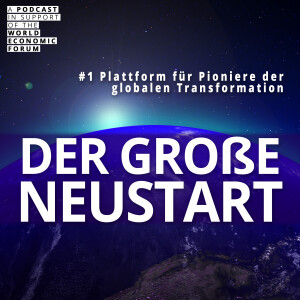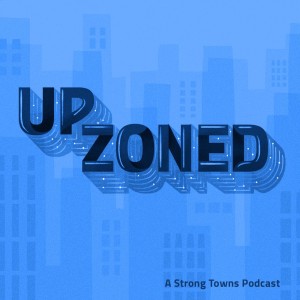We’ve written a lot at Strong Towns about the problems with big box stores: the acres of valuable land they (and their parking lots) consume, the way the buildings are designed to be obsolete, the way they siphon money out of town rather than build wealth from within. Yet it’s hard to put all the blame on the Walmarts and Home Depots and Costcos of the world; they have figured out how to succeed under the rules that we—the towns and cities—have established. If we consistently get outcomes we don’t like, we need to change the rules of the game.
The same is true of parking. American cities are massively overbuilt on parking. This has both real costs and opportunity costs. Some of the blame might be put on a parking developer who turns otherwise valuable land into a surface parking lot, holding onto it like a land speculator until it can be sold for a big profit. But don’t we the residents deserve some of the responsibility too? After all, parking developers are thriving within the system we made...or at least allow to continue.
In a recent article, Joe Cortright of City Observatory described aspects of that system: “We have too much parking for many reasons: because we’ve subsidized highway construction and suburban homes, because we’ve mandated parking for most new residential and commercial buildings, and because we’ve decimated transit systems. But a key contributor to overparking is the strong financial incentives built into tax systems.” Cortright then detailed a proposed ordinance in Hartford, Connecticut that would begin to correct this. Expanding fees on private commercial parking lots and structures, the ordinance would, he said, mimic the important features of a land value tax. “Call it LVT-lite,” he wrote.
In this week’s episode of Upzoned, host Abby Kinney, an urban planner in Kansas City, and Chuck Marohn, the president of Strong Towns, discuss Joe Cortright’s article and how cities essentially subsidize parking. They talk about the land value tax, the way current tax systems incentivize parking and disincentivize improvements, and why all that parking is an anchor on our prosperity.
Then in the Downzone, Chuck talks about a course he’s been taking on the Black Death. And Abby talks about new adventures in cooking and making music.
Additional Show Notes:-
“How to Stop Giving Parking Developers A Free Ride,” by Joe Cortright (Streetsblog)
-
City Observatory
-
City Observatory (Twitter)
-
Abby Kinney (Twitter)
-
Charles Marohn (Twitter)
-
Gould Evans Studio for City Design
-
Theme Music by Kemet the Phantom (Soundcloud)
-
Select Strong Towns articles on parking:
-
“Detroiters Push for Parking Reform in the Heart of Motown,” by Francis Grunow
-
“Asphalt City: How Parking Ate an American Metropolis,” by Daniel Herriges
-
“Parking Dominates Our Cities. But Do We Really *See* It?” by Daniel Herriges
-
“Life After Parking,” by Alexander Dukes
-
“Parking is Important and Not Important,” by Kevin Klinkenberg
-
“The Many Costs of Too Much Parking”
-
More Episodes
Are Cars Here to Stay?
 2022-05-04
2022-05-04
Process Versus Visible Outcomes
 2022-04-27
2022-04-27
Can We Build Strong Towns from Scratch in the 21st Century?
 2022-04-20
2022-04-20
Who Should Be Able to Veto New Housing Production?
 2022-04-13
2022-04-13
Our Fragile System Runs on Cheap Oil
 2022-03-16
2022-03-16
Can a Houstonian Approach to Homelessness Work in L.A.?
 2022-03-09
2022-03-09
Blaming Drivers for the Mistakes of Traffic Engineers
 2022-02-23
2022-02-23
Free (Rural) Land: Any Takers?
 2022-02-16
2022-02-16
Where Does Cohousing Fit in the Housing Ecosystem?
 2022-02-09
2022-02-09
Can Corporate Campuses Urbanize the Suburban Experience?
 2022-02-02
2022-02-02
No Insurance for Wildfire-Prone California
 2022-01-26
2022-01-26
Weaponizing Historic Preservation
 2022-01-19
2022-01-19
Population Growth and the Housing Crisis
 2022-01-12
2022-01-12
Disaster Relief for America‘s Housing Crisis
 2021-12-15
2021-12-15
The Infrastructure Bill, Racial Equity, and Local Government: How Should the Money Be Spent?
 2021-11-24
2021-11-24
The ”Bikelash” Phenomenon (and Why It Shouldn‘t Scare Local Leaders)
 2021-11-17
2021-11-17
”Zillow Offers”...Homes to Investors, Not Homeowners
 2021-11-10
2021-11-10
The Gathering ”Swarm” of Small-Scale Developers
 2021-11-03
2021-11-03
Regulating by Use
 2021-10-27
2021-10-27
The ”Great Supply Chain Disruption”
 2021-10-20
2021-10-20
Create your
podcast in
minutes
- Full-featured podcast site
- Unlimited storage and bandwidth
- Comprehensive podcast stats
- Distribute to Apple Podcasts, Spotify, and more
- Make money with your podcast
It is Free
You may also like

Social Dallas Podcast


Change Church Podcast


Der Große Neustart


The STIMPACK Podcast


Exhausted Sparrows Unite


- Privacy Policy
- Cookie Policy
- Terms of Use
- Consent Preferences
- Copyright © 2015-2024 Podbean.com



 iOS
iOS Android
Android